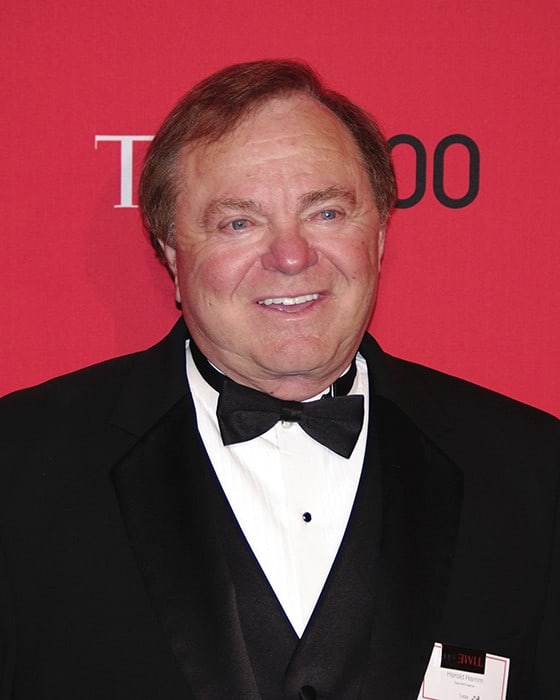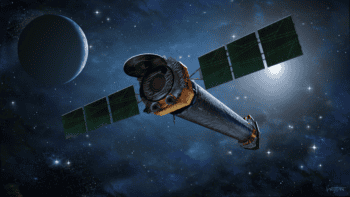
US scientists have responded to the choice of Republican Donald Trump as president-elect with a mixture of astonishment and anxiety. Having anticipated the election of Democrat Hillary Clinton, who was backed by a team supportive of science, researchers now fear a future in which science policy may play a minor role in public affairs.
The most difficult issue for scientists is gauging the position the Trump administration will take on science. “He didn’t say much, if anything, about science during the campaign,” says physicist Neal Lane, a former presidential science adviser who is now a senior fellow at Rice University’s James A Baker III Institute for Public Policy. “Trump has said so many different things, many of them contradictory, that it is not at all clear what he will do.”
That view is shared by physicist Michael Lubell from City College of New York, who is also public-affairs director at the American Physical Society. “We’re looking at a black hole,” he says. “Nobody knows what this guy is going to do – and I’m not sure he does.”
The community’s angst reflects the severity of the scientific issues that Trump faces once he is inaugurated on 20 January. “[He] will confront a broad range of global challenges from addressing climate change and securing our energy future to sustaining investments in scientific research efforts in numerous areas, including medicine,” notes a statement from the American Association for the Advancement of Science (AAAS). Rush Holt, a physicist and former Democratic congressman who is AAAS chief executive, adds that Trump “must be prepared to advance science, technology and education to drive economic progress, innovation and jobs, and to improve people’s lives”.
Little contact
Uncertainty about the incoming administration’s ability to meet those challenges extends to the identity of key members of the Trump campaign. “We tried to make contact with his campaign people on science,” says Lubell. “The only name that surfaced was from a small college in Iowa with a background in economics – and we got no response from him.”
Adding to the scientific community’s concern is that Republicans, some of whom take a sceptical view of certain aspects of science, will control both the Senate and the House of Representatives. “I expect that Trump will defer to the Republican-controlled Congress on priorities for science, which would not bode well for some fields,” says Lane, adding that “even peer review has been attacked” by some House members.
Nobody knows what this guy is going to do – and I’m not sure he does
Michael Lubell, City College of New York
Congress holds the power of the purse and many Republican members want to reduce the national budget deficit by cutting back on spending. President-elect Trump has stated his desire to reduce taxes, increase spending on defence and infrastructure as well as maintain current spending levels on social initiatives. This would leave little cash for discretionary programmes, including support for scientific research. “Many of the things Trump has said he planned to do are very costly,” says Lane. “Conservatives in Congress are not likely to want to raise money through taxation; they’re more likely to reduce revenues. So nondiscretionary spending, including federal research budgets, might be expected to see continued cuts.”
Fox guarding the hen house
One area of science that is almost certain to suffer under the new administration and Congress is climate change. Donald Trump has described global warming as a hoax perpetrated by the Chinese government to harass the US, while many Republicans deny there is a human contribution to global warming. “I’m afraid that our worst fears have been realized,” says climatologist Michael Mann from Pennsylvania State University. “If Trump makes good on his campaign promises and pulls out of the Paris treaty, it is difficult to see a path forward to keeping warming below dangerous levels – it might make it impossible to stabilize planetary warming below an increase of 2 °C.”
The stewardship of science-based government agencies will, of course, depend on the individuals nominated to head them. Again, the Trump campaign has revealed little information, but a few clues have emerged. Harold Hamm, an oil-industry executive from Oklahoma, has emerged as a possible head of the Department of Energy. This appointment, if it happens, would be in contrast to the approach of president Barack Obama who selected senior academics, such as the Nobel laureate Steven Chu, to that position. Indeed, climate-change sceptic Myron Ebell of the Competitive Enterprise Institute, currently heads the Trump transition team for the Environmental Protection Agency – in what Mann describes as “a case of the fox guarding the hen house.”
The most important appointment for the scientific community is that of presidential science adviser, who traditionally heads the Office of Science and Technology Policy (OSTP). “The nation’s incoming president will need to move quickly to appoint a respected scientist or engineer to serve as the next science adviser, to ensure immediate input related to science and technology,” says Holt. “The next science adviser will need to be integrated at the earliest possible stage into the administration’s decision-making process – not just on topics with an obvious science connection such as infectious disease response, but on matters concerning diplomacy, cyber security, agriculture and advanced manufacturing, as well as resilient infrastructure, which also relate to science and technology.”
However, Lubell wonders whether Trump will even appoint one. “He’ll face a problem finding a science adviser, if he wants one,” he says. “No law says the position must be filled and if Trump says ‘we don’t need the OSTP’, Congress won’t fund it.”
Pro-science senators
Yet amid the gloom, analysts still see a glimmer of hope for science. “There are pro-science Republicans and Democrats in the Senate, even some in the House,” adds Lane. While Lubell points to Trump’s campaign catchphrase: Make America Great Again. “The slogan provides an opportunity for him to say we need to claim American leadership in science,” he says. Mann expresses hope that “the world will find a way to move forward in combating climate change even if the US refuses to play an active role”.
US science now enters a new phase and officials say that they must make a case for research to the new administration and the general public. “The community, and especially corporate leaders who are the beneficiaries of the federal support of research in universities and national labs and centres, need to work even harder to get the story out to the public and the elected representatives, whatever their party and whatever their office,” says Lane.



